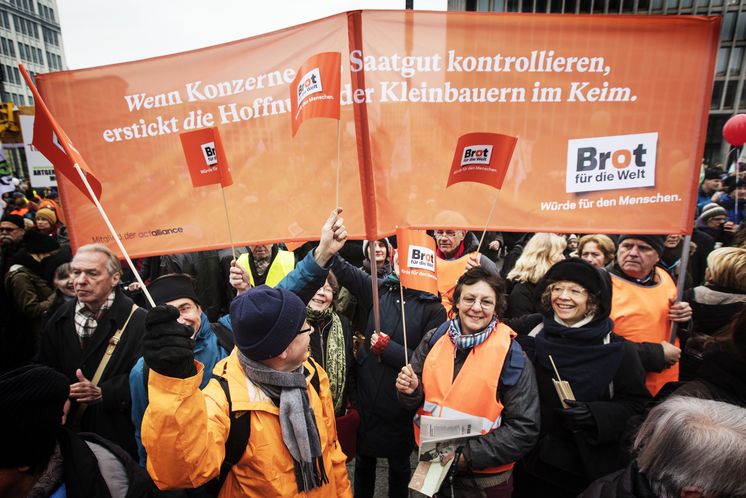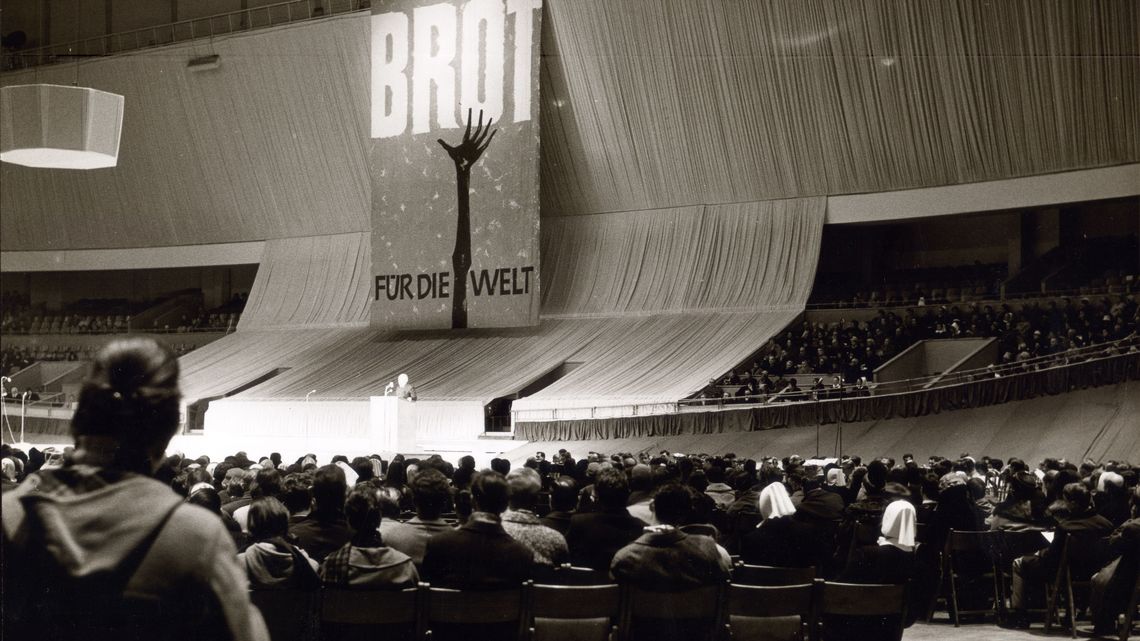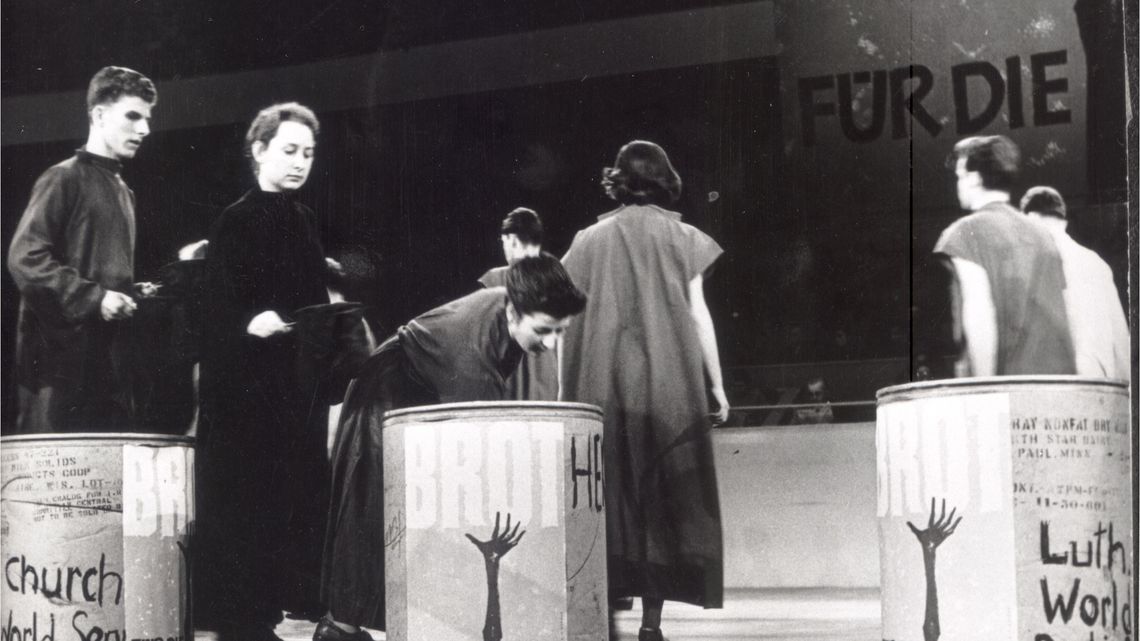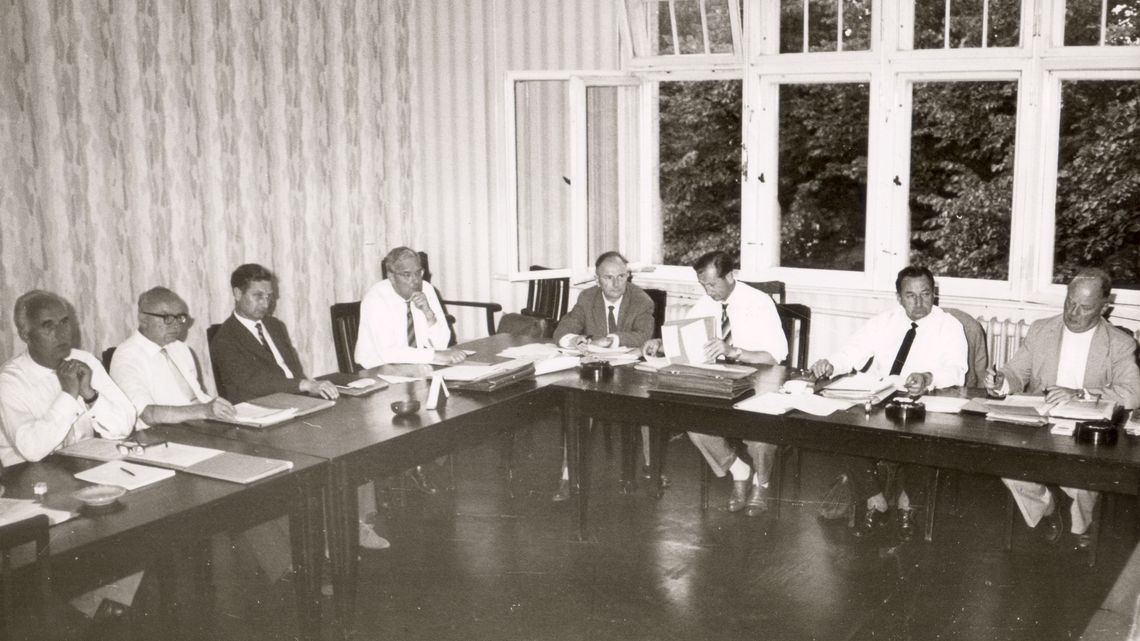The beginning: On 12th of December 1959, the 12,000 seats in the "Deutschlandhalle" in Berlin were filled for the foundation of the campaign Brot für die Welt. The "Hungerhand" by the artist Rudi Wagner on the poster was the central motif of the campaign for a long time.
60 Years in Solidarity with the Poor
Since 1959 Brot für die Welt (Bread for the World) has been committed to overcoming injustice, hunger and poverty in the world.
The Origins
On 12 December 1959, the Protestant Churches opened the first Brot für die Welt campaign in Berlin's Deutschlandhalle in front of 12,000 visitors. The catalyst for this first fundraising campaign was a famine in India, which affected some 12 million people. Another reason was the generous reconstruction assistance which had come from abroad after the Second World War. Initially, only a single campaign was planned. The first collection yielded 19 million marks in the West and five million marks in East Germany.
In the first year of the campaign, financing was raised for 13 projects from more than ten countries on three continents. The focal point of the work was India, where child nutrition was improved and agricultural projects were developed. Due to its great success, the campaign was repeated during the Advent period of 1960 and was finally made a permanent institution under the umbrella of the Diakonisches Werk (Social Service Agency of the Protestant Church in Germany).
Photo Gallery: 60 Years of Brot für die Welt
Learning from One Another
Also in 1960 an "Overseas Register" was established in the Protestant student congregations, which alerted interested young academics to important responsibilities in other regions of the world. This led to the founding on 9 November 1960 of the “Working Group for Overseas Service of Protestant Churches in Germany”. In 1961 the first five experts were sent overseas. By 1962 these had increased to 37, with a focus on health and crafts occupations and technical personnel.
In 1962 the Evangelical Church in Germany (EKD) founded the Protestant Association for Cooperation in Development (EZE). Like the Catholic Church's Catholic Central Agency for Development, it thus availed itself of the federal government's offer to make public funds available to the churches to support their partners' development projects.
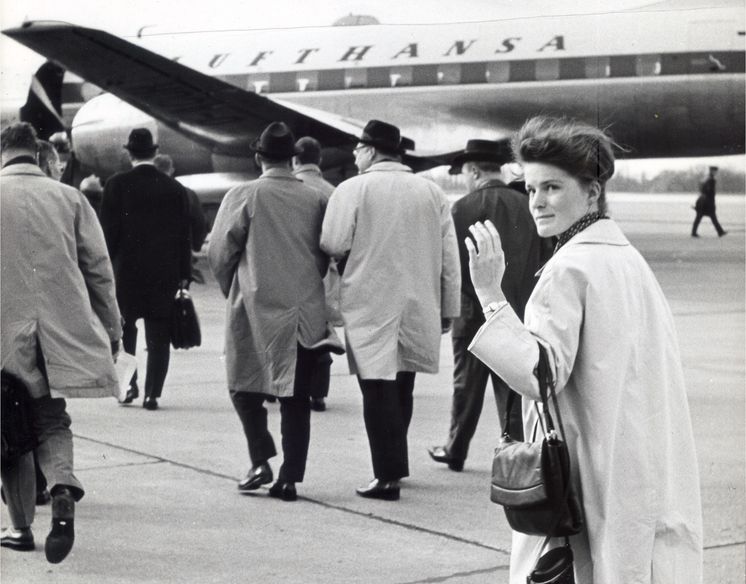
Protestant Churches Take Responsibility
At the Synod of the Protestant Church in Germany in 1968, the theologian Helmut Gollwitzer called on the Church to stand up to the powerful in politics and business in the interests of the poor. The Synod recommended that national churches allocate at least two percent of church tax revenues to combat world poverty. Many Protestant state and free churches took up the call and collectively founded the Church Development Service.
The “Association of the Churches’ Development Services” was founded in 1970. In this association, Diakonie's Brot für die Welt campaign worked with the Protestant Association for Cooperation in Development (EZE), with "Service Overseas" (DÜ), with the Protestant Association for World Mission (the forerunner of the Association of Protestant Churches and Missions in Germany (EMW) and the Church Development Service of the Evangelical Church in Germany (KED).
Option for the Poor
In 1986 the EKD synod in Bad Salzuflen confirmed the Option for the Poor, embedded in the ecumenical solidarity of the Churches, as a fundamental objective of the Church Development Service. It was committed to strengthening educational and informational work on domestic development issues and to continuing dialogue with the government, political parties and associations. In 1995 and 1996 the EKD synods again addressed the future of Church development cooperation. So as to make effective use of the available funds, the Protestant development organisations were asked to propose structural reforms.
Effective Use of Resources
In the year 2000, the EKD's project to pool its strengths in development cooperation began to bear fruit. The Church Development Service was born from the fusion of the EZE, KED, DÜ and the Ecumenical Missionary World Service of the EMW. In 2003 the Ecumenical Study Institute was added.
In 2012 the Church Development Service and the Diakonisches Werk with its campaign Brot für die Welt merged and form today the Protestant Agency for Diakonie and Development (EWDE). This is intended to bring international development work and national social work closer together. One of the two branches of the Protestant Agency for Diakonie and Development is Brot für die Welt, which also includes Diakonie Katastrophenhilfe (Diakonie Emergency Aid) for immediate emergency aid. In October 2012 the organisation took up its work at its new location in Berlin.
